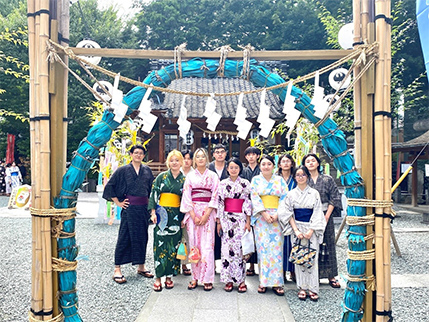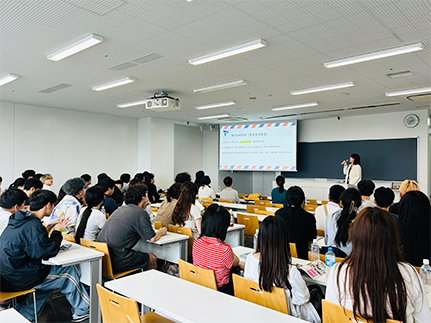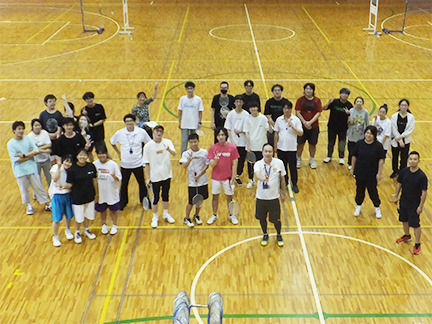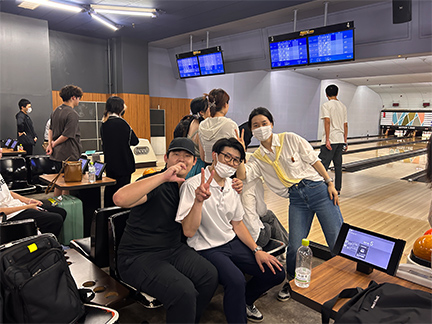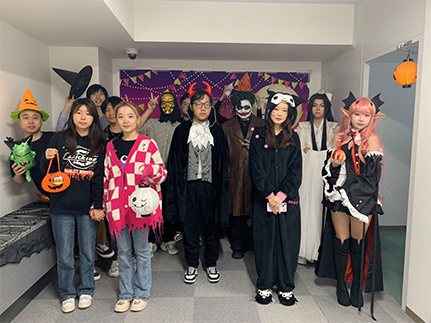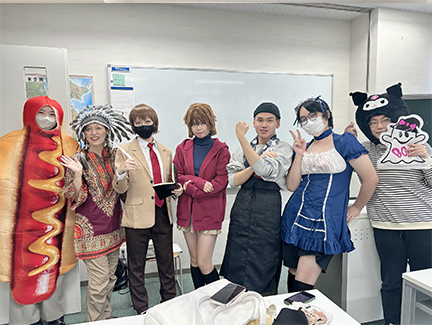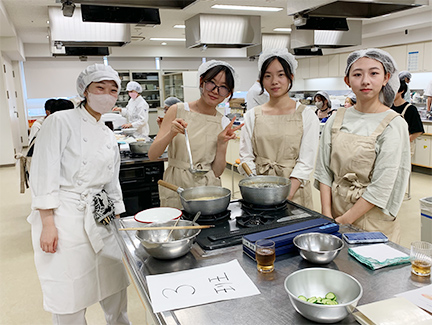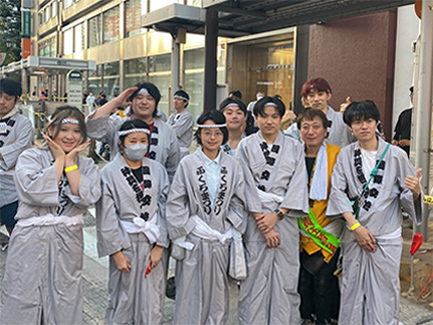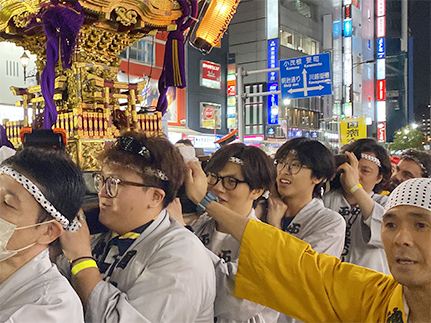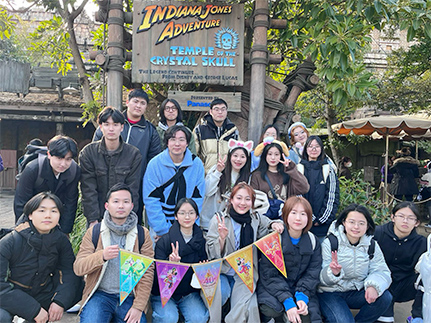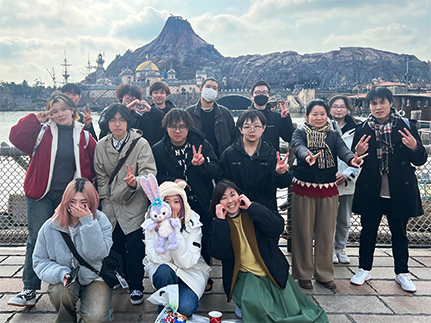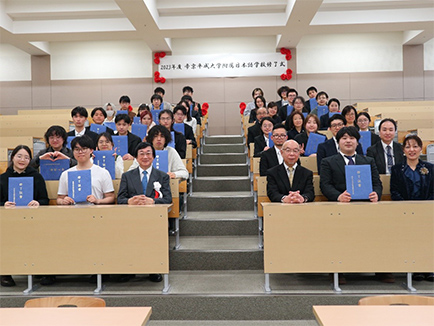Course Information
| Curriculum | Enrollment Period | Total Days and Credit Hours | School Hours |
| 2 years Academic Japanese Course | April | 384 days /1,536 credit hours | Morning classes 9:00-12:30 Afternoon classes 13:00-16:30 |
| 1 year 6 months Academic Japanese Course | October | 288days / 1,152 credit hours |
*School determines whether a student takes the morning or the afternoon classes.
Click here for Tuition FeesCurriculum
Goals
(1)Be able to build relationship with others through communication in Japanese.
(2)Be able to use the Japanese language and solve problems on one’s own.
(3)Understand the social and cultural context, have an inquisitive mind, and take proactive initiatives.
Class Format
Classes are intended as a place of communication where teachers and Japanese language students can interact and teach each other, and many lessons incorporate role-playing, peer work, group activities, discussions, presentations, and other practical exercises, with an emphasis on cooperation.

Curriculum Objectives for the 2 years Academic Japanese Course
| Main Targets | Those aspiring to enter a Japanese higher education institution with Japanese proficiency equivalent to A1 at the time of admission |
| Curriculum Objectives | Can understand the main content of complex texts on both concrete and abstract topics, including discussions in their field of specialization for further education, as well as most television news and current affairs programs. Can communicate fluently and naturally with proficient Japanese speakers without tension and deliver presentations on topics related to their fields of interest. |
The goals for each language activity are B2 for all activities such as "listening", "reading", "spoken interaction", "spoken production", and "writing".
Curriculum Objectives for the 1 year 6 months Academic Japanese Course
| Main Targets | Those aspiring to enter a Japanese higher education institution with Japanese proficiency equivalent to A1 at the time of admission |
| Curriculum Objectives | Be able to comprehensively understand the content by listening to and reading texts on social and cultural topics. Be able to explain the diverse options and drawbacks of a topic encountered in their fields of further study or in general society by presenting reasons for or against a particular viewpoint, supported by evidence. Be able to express their opinions on topics related to their fields of interest and concern, demonstrating an awareness of discourse structure. |
The goals for each language activity are B2 for all activities such as "listening", "reading", "spoken interaction", "spoken production", and "writing".
Timetable
| 2 years Academic Japanese Course Sample for the Intermediate Class 1 |
Monday | Tuesday | Wednesday | Thursday | Friday | |
| AM 1st Period |
9:00 ~ 9:45 |
Comprehensive Japanese | Comprehensive Japanese | Comprehensive Japanese | Listening | Comprehensive Japanese |
| AM 2nd Period |
9:55 ~ 10:40 |
Comprehensive Japanese | Comprehensive Japanese | Comprehensive Japanese | Listening | Comprehensive Japanese |
| AM 3rd Period |
10:50 ~ 11:35 |
Reading Comprehension | Exam Preparation | Exam Preparation | Writing | Character Writing |
| AM 4th Period |
11:45 ~ 12:30 |
Reading Comprehension | Exam Preparation | Exam Preparation | Writing | Speaking |
| 1 year 6 months Academic Japanese Course Sample for the Beginner Class 1 |
Monday | Tuesday | Wednesday | Thursday | Friday | |
| PM 1st Period |
13:00 ~ 13:45 |
Comprehensive Japanese | Comprehensive Japanese | Comprehensive Japanese | Comprehensive Japanese | Comprehensive Japanese |
| PM 2nd Period |
13:55 ~ 14:40 |
Comprehensive Japanese | Comprehensive Japanese | Comprehensive Japanese | Comprehensive Japanese | Comprehensive Japanese |
| PM 3rd Period |
14:50 ~ 15:35 |
Comprehensive Japanese | Comprehensive Japanese | Reading Comprehension | Reading Comprehension | Comprehensive Japanese |
| PM 4th Period |
15:45 ~ 16:30 |
Comprehensive Japanese | Character Writing | Reading Comprehension | Character Writing | Comprehensive Japanese |
Annual Schedule
| Month | Main Schedule until Graduation |
| April | Entrance Ceremony, Orientation, Placement Test |
| May | EJU Practice Test, Individual Interview |
| June | EJU, JLPT Practice Test |
| July | JLPT, Information Session on University Admission |
| August | Individual Interview, University/School Admission Survey |
| September | Term-End Exam |
| October | Entrance Ceremony for Fall Admission, Orientation, Placement Test |
| November | EJU, Individual Interview, JLPT Practice Test, Application for Extension of Period of Stay |
| December | JLPT, Term-End Exam, Disaster Prevention Drill |
| January | Career Survey, Pre-Completion Guidance |
| February | Application for Extension of Period of Stay |
| March | Graduation Ceremony, Awarding of Certificate of Completion |
By embracing the rich diversity of each student and engaging in external visits and exposure to Japanese culture, we aim to enhance general knowledge and, through group activities, develop the ability to coexist and collaborate in society.
| Month | Major Events and Off-Campus Visits |
| April | Entrance Ceremony for April Admission |
| May | Ikebukuro Life Safety Learning Center |
| June | Yukata Experience in Kawagoe |
| July | Open Campus at Teikyo Heisei University |
| August | Local Summer Festival |
| September | Sports Meet |
| October | Halloween Costumes |
| November | Climbing Mt.Takao, Auditing University Classes |
| December | Disney Resort |
| January | New Year's Fun |
| February | Visiting Asakusa, Making Matcha and Japanese confectionery |
| March | Graduation Ceremony |
2025 Academic Year Holiday Periods
| Period | |
| Spring Break | Tuesday, March 18, 2025 – Wednesday, April 9, 2025 |
| Inter-term Break | Friday, June 20, 2025 – Monday, June 30, 2025 |
| Summer Vacation | Saturday, July 26, 2025 – Sunday, August 17, 2025 |
| Inter-term Break | Wednesday, October 1, 2025 – Wednesday, October 8, 2025 |
| Winter Vacation | Friday, December 19, 2025 – Monday, January 5, 2026 |
| Spring Break | Wednesday, March 18, 2026 – Early April 2026 |


